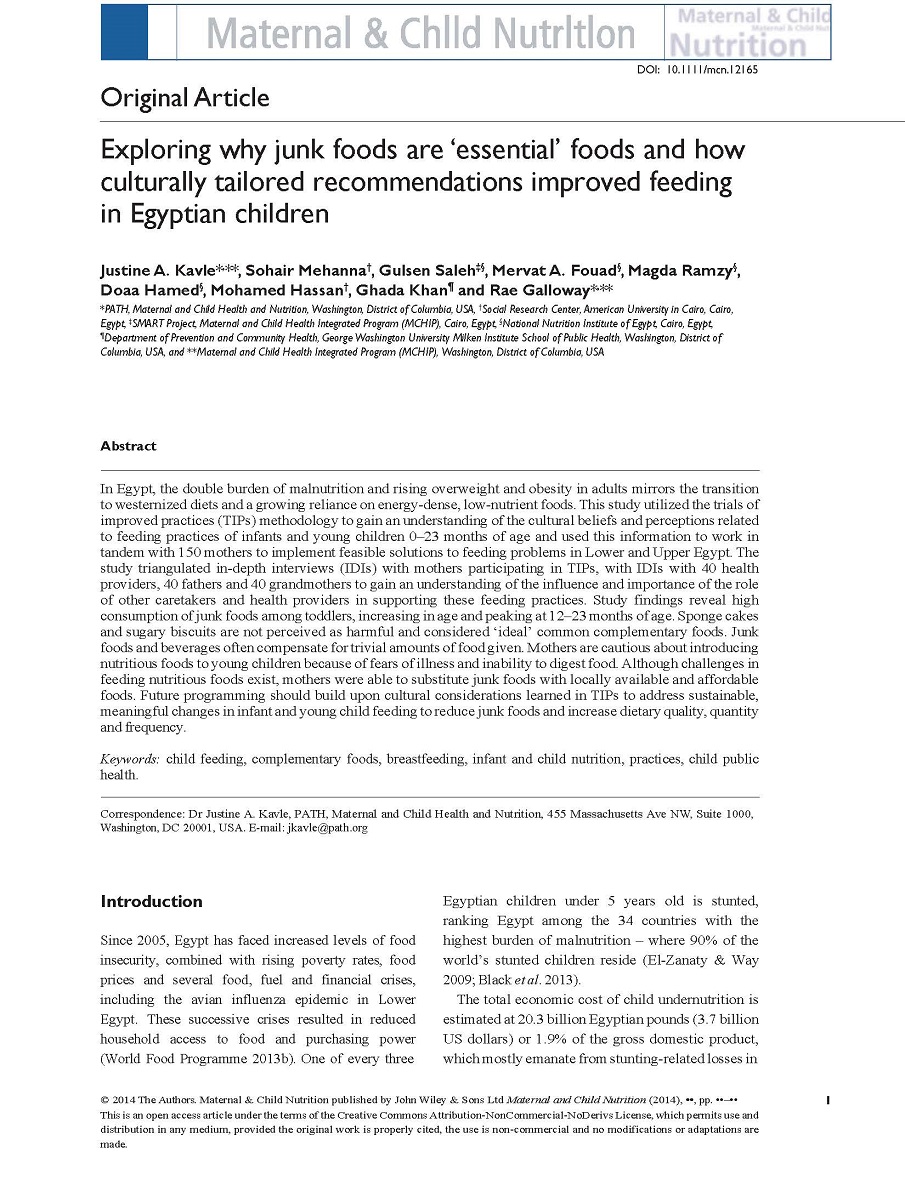Publish Date: July 2015
Author: Justine A. Kavle, Sohair Mehanna, Gulsen Saleh, Mervat A. Fouad, Magda Ramzy
This open access, MCSP co-authored article in the journal Maternal & Child Nutrition focuses on Egypt, where the double burden of malnutrition and rising overweight and obesity in adults mirrors the transition to westernized diets and a growing reliance on energy-dense, low-nutrient foods. This study utilized the trials of improved practices (TIPs) methodology to gain an understanding of the cultural beliefs and perceptions related to feeding practices of infants and young children 0–23 months of age and used this information to work in tandem with 150 mothers to implement feasible solutions to feeding problems in Lower and Upper Egypt.
The study triangulated in-depth interviews (IDIs) with mothers participating in TIPs, with IDIs with 40 health providers, 40 fathers and 40 grandmothers to gain an understanding of the influence and importance of the role of other caretakers and health providers in supporting these feeding practices. Study findings reveal high consumption of junk foods among toddlers, increasing in age and peaking at 12–23 months of age. Sponge cakes and sugary biscuits are not perceived as harmful and considered ‘ideal’ common complementary foods. Junk foods and beverages often compensate for trivial amounts of food given.
Mothers are cautious about introducing nutritious foods to young children because of fears of illness and inability to digest food. Although challenges in feeding nutritious foods exist, mothers were able to substitute junk foods with locally available and affordable foods. Future programming should build upon cultural considerations learned in TIPs to address sustainable, meaningful changes in infant and young child feeding to reduce junk foods and increase dietary quality, quantity and frequency.
Exploring why junk foods are 'essential' foods and how culturally tailored recommendations improved feeding in Egyptian children (1805 downloads )

